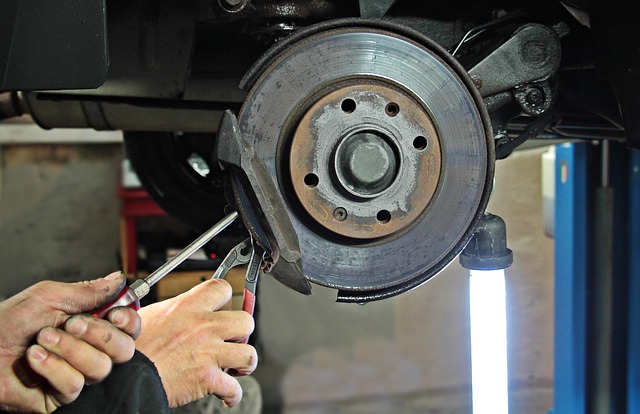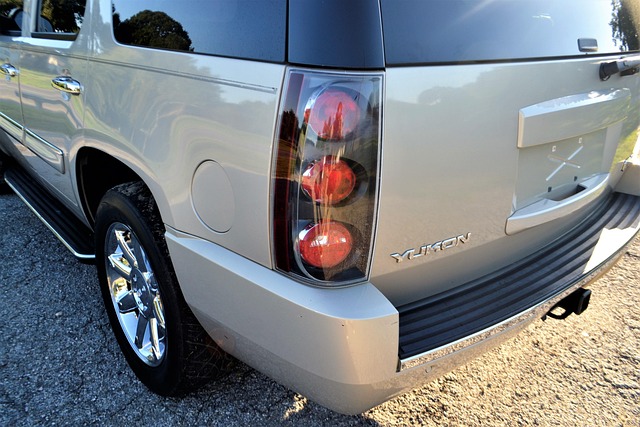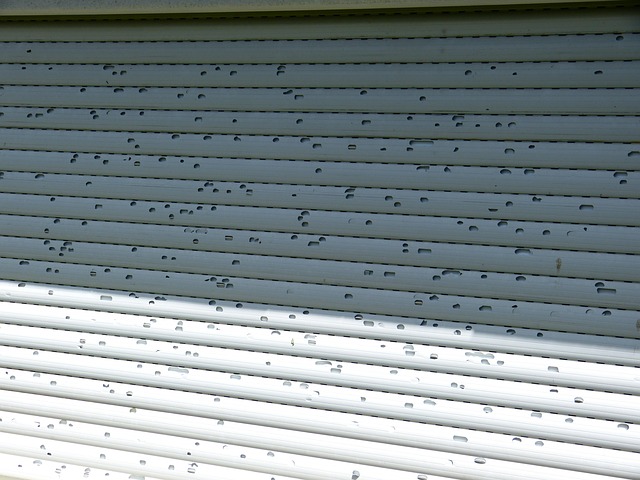Mercedes Factory Authorized Repair: Strict Safety Standards Ensure Quality
Mercedes factory authorized repair centers uphold stringent safety standards, ensuring all body work…….
Welcome to an in-depth exploration of the world of Mercedes factory authorized repair, a critical aspect of automotive maintenance and servicing that demands meticulous attention and expertise. This article aims to unravel the intricacies of this specialized field, highlighting its global impact, technological advancements, and the challenges it faces. By delving into these topics, we will provide valuable insights for stakeholders, enthusiasts, and anyone interested in the future of vehicle repair.
Definition: Mercedes factory authorized repair, often referred to as ‘factory-approved’ or ‘original equipment manufacturer (OEM)’ repair, is a specialized process of repairing and maintaining Mercedes-Benz vehicles using methods, parts, and tools specifically provided or approved by the Mercedes-Benz manufacturer. This type of repair adheres strictly to the standards set by the company, ensuring that the vehicle’s performance, safety, and original design integrity are preserved.
Core Components:
Historical Context and Significance:
The concept of factory authorized repair has evolved over the years, driven by increasing vehicle complexity and safety standards. Mercedes-Benz, renowned for its engineering prowess, was among the first automakers to emphasize the importance of controlled repairs to ensure vehicle reliability and safety. This practice gained prominence as vehicles became more technologically advanced, requiring specialized knowledge and tools for effective maintenance.
Today, authorized repair is not just a service; it’s a critical component of the automotive industry ecosystem. It ensures consumer safety, preserves vehicle value, and fosters brand loyalty. For Mercedes-Benz owners, knowing that their vehicles are serviced by trained professionals using OEM parts offers peace of mind.
International Reach: Mercedes factory authorized repair has left its mark globally, with a significant presence in over 100 countries. The demand for this service varies across regions, influenced by factors such as vehicle ownership rates, economic conditions, and local regulatory frameworks. For instance, regions with a high concentration of Mercedes-Benz owners, like Western Europe and North America, typically have well-established authorized repair networks.
Trends Shaping the Industry:
Market Dynamics: The global market for Mercedes factory authorized repair is substantial and continues to grow. This growth can be attributed to several factors:
Investment Patterns: Mercedes-Benz invests heavily in its global repair network, including training centers, service facilities, and research facilities. These investments ensure that the company maintains a competitive edge while meeting customer expectations. The financial commitment also reflects the strategic importance of authorized repair in the overall business model.
Economic Impact:
Digital Service Solutions: One of the most significant technological leaps in authorized repair is the implementation of digital service solutions. Mercedes-Benz has developed advanced diagnostic tools that allow technicians to access real-time data, perform remote diagnostics, and access global knowledge databases. This technology streamlines repairs, reduces errors, and enhances efficiency.
Electronic Service Manuals (ESM): ESMs provide detailed, up-to-date information on vehicle systems, repair procedures, and troubleshooting guides. These digital manuals are easily accessible and regularly updated, ensuring technicians have the latest information at their fingertips.
Advanced Training Simulations: Virtual reality (VR) and augmented reality (AR) technologies are being used to create immersive training environments for technicians. These simulations allow for hands-on experience in a safe, controlled setting, improving learning outcomes.
Internet of Things (IoT) Integration: IoT devices are integrated into vehicles to monitor performance and send diagnostic data remotely. This enables proactive maintenance and faster problem identification, changing the landscape of authorized repair.
Artificial Intelligence (AI): AI algorithms analyze vast amounts of vehicle data to predict potential issues, optimize repair processes, and improve overall efficiency. AI-powered systems can also assist in complex diagnostics, reducing technician workload.
Global Regulatory Frameworks: The authorized repair industry is subject to various regulations worldwide, aimed at ensuring consumer safety, fair business practices, and environmental protection. These include:
Regional Variations: Regulatory environments vary across regions, affecting authorized repair practices:
Industry Associations and Advocacy: Organizations like the International Organization of Motor Vehicle Manufacturers (OICA) and regional automotive associations play a vital role in shaping policy, advocating for industry interests, and promoting best practices in authorized repair.
Access and Cost Concerns: One of the primary challenges is ensuring that all vehicle owners have access to quality, factory-authorized repairs at affordable costs. In remote areas or regions with limited authorized service centers, customers may face longer travel distances or higher expenses for repairs.
Technological Gaps: While technological advancements have improved authorized repair, there are still challenges related to the initial investment in new tools and training. Smaller workshops or independent technicians might struggle to keep up with the latest technology, potentially leading to substandard repairs.
Competition from Independent Repair Shops: Independent repair shops often offer lower labor rates and alternative parts, attracting price-conscious customers. This competition can put pressure on authorized service centers to reduce prices, potentially impacting their ability to maintain high standards.
Criticism of Manufacturer Control: Some critics argue that allowing manufacturers excessive control over after-sales services through BERs restricts consumer choice and increases costs. They advocate for greater transparency and flexibility in the repair process.
Case Study 1: Germany – Mercedes-Benz Customer Experience Centers
Mercedes-Benz established Customer Experience Centers in Germany, offering a unique blend of retail and repair services. These centers provide an immersive, modern repair experience, combining traditional craftsmanship with digital innovation. Customers appreciate the transparent pricing, advanced diagnostics, and personalized service, fostering brand loyalty.
Case Study 2: United States – The ‘Factory Certified’ Approach
In the US, Mercedes-Benz has successfully promoted its ‘Factory Certified’ repair program. This initiative emphasizes the use of genuine parts and factory-trained technicians, ensuring high-quality repairs. The program includes comprehensive training for technicians and a customer loyalty reward system, leading to increased brand satisfaction.
Case Study 3: China – Rapid Urbanization and Repair Services
With rapid urbanization in China, Mercedes-Benz adapted its authorized repair strategy. They established mobile repair units, allowing technicians to visit customers’ locations, especially in dense urban areas. This approach has been well-received, addressing accessibility issues and catering to the unique needs of a fast-growing market.
Sustainability and Eco-Friendly Practices: The industry is expected to see further integration of sustainable practices, including eco-friendly parts, recycling programs, and energy-efficient repair facilities. Mercedes-Benz’s commitment to sustainability will likely shape this trend globally.
Advanced Diagnostics and AI Integration: Artificial intelligence and machine learning will play a more significant role in diagnostics, predictive maintenance, and optimizing repair processes. These technologies will enhance efficiency and reduce costs.
Remote and Mobile Repair Services: With technological advancements, remote repairs and mobile units will likely grow, offering convenience and accessibility to customers worldwide.
Global Standardization and Digitalization: Mercedes-Benz’s goal of global standardization will continue, ensuring consistent quality across borders. Digitalization will further penetrate the industry, improving communication, training, and customer engagement.
Electric Vehicle (EV) Maintenance: As electric vehicles gain popularity, authorized repair centers will need to adapt to the unique maintenance requirements of these new vehicle types. Specialized training and tools for EV repairs will become essential.
Mercedes factory authorized repair stands as a cornerstone of the automotive industry, ensuring the longevity and safety of Mercedes-Benz vehicles worldwide. The global impact, technological advancements, and strategic considerations highlight its significance. While challenges exist, the industry’s ongoing evolution, driven by innovation and regulatory frameworks, promises a promising future.
As we move forward, authorized repair will continue to adapt to changing vehicle technologies, consumer expectations, and environmental considerations. By embracing emerging trends and staying true to its core values, Mercedes-Benz can maintain its leadership in authorized repair, ensuring customer satisfaction and vehicle reliability for generations to come.
Q: What sets factory authorized repairs apart from regular mechanic services?
A: Factory authorized repairs adhere strictly to the manufacturer’s standards, using OEM parts and following precise protocols. Regular mechanic services may not always meet these rigorous criteria, potentially affecting vehicle performance and safety.
Q: Do I need to use genuine Mercedes-Benz parts for repairs?
A: While not mandatory, using genuine OEM parts ensures compatibility, quality, and long-term performance. These parts are designed specifically for your Mercedes-Benz model, ensuring optimal fit and functionality.
Q: How can I find an authorized repair center near me?
A: You can visit the official Mercedes-Benz website, which typically has a location finder or service center locator. Alternatively, local dealerships can guide you to nearby authorized repair facilities.
Q: Are there costs associated with factory authorized repairs that are higher than independent shops?
A: Costs can vary based on various factors, including location and the complexity of the repair. However, authorized centers offer transparent pricing, and their commitment to quality may result in long-term savings by preventing future issues.
Q: Can I get my Mercedes-Benz repaired at any workshop?
A: No. Factory authorized repairs should only be performed at certified service centers or workshops that meet Mercedes-Benz’s standards. Using unapproved facilities may void warranties and compromise vehicle safety.

Mercedes factory authorized repair centers uphold stringent safety standards, ensuring all body work…….

Mercedes Factory Authorized Repair stands out as the premier choice for high-quality restoration of…….

Mercedes Factory Authorized Repair is a specialized service program ensuring all repairs on Mercedes…….

Mercedes Factory Authorized Repair is a specialized service that maintains the exceptional quality a…….

Mercedes Factory Authorized Repair centers maintain high standards for all vehicle maintenance, usin…….

Mercedes Factory Authorized Repair ensures top-tier service for your luxury vehicle using only Origi…….

Mercedes Factory Authorized Repair (MFAR) offers specialized services ensuring your vehicle maintain…….